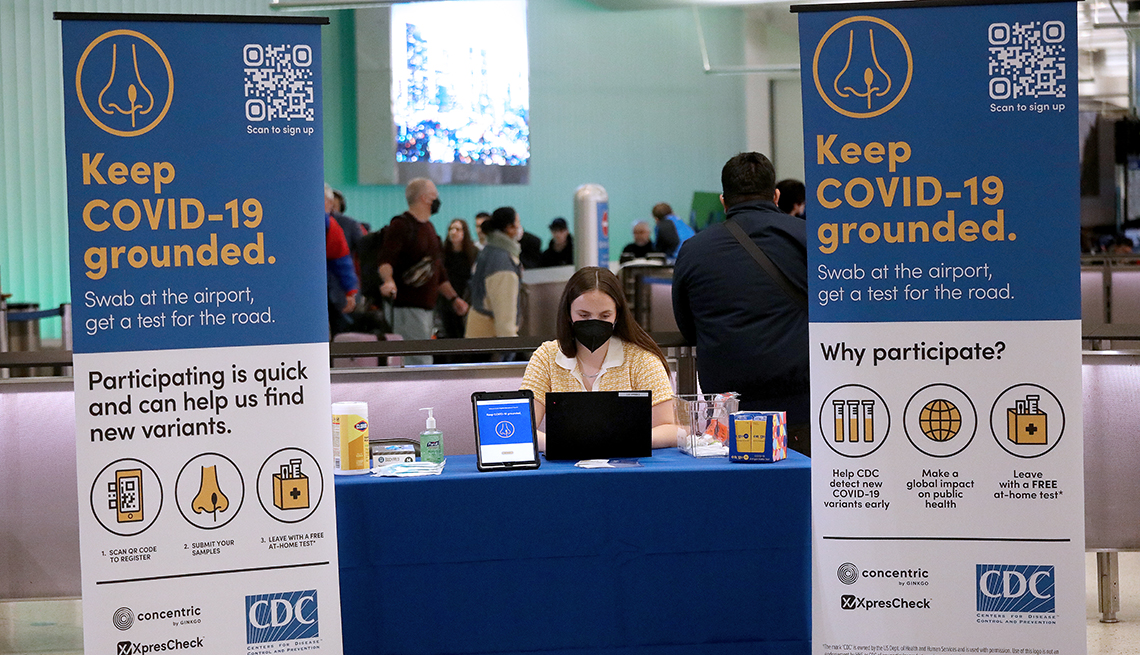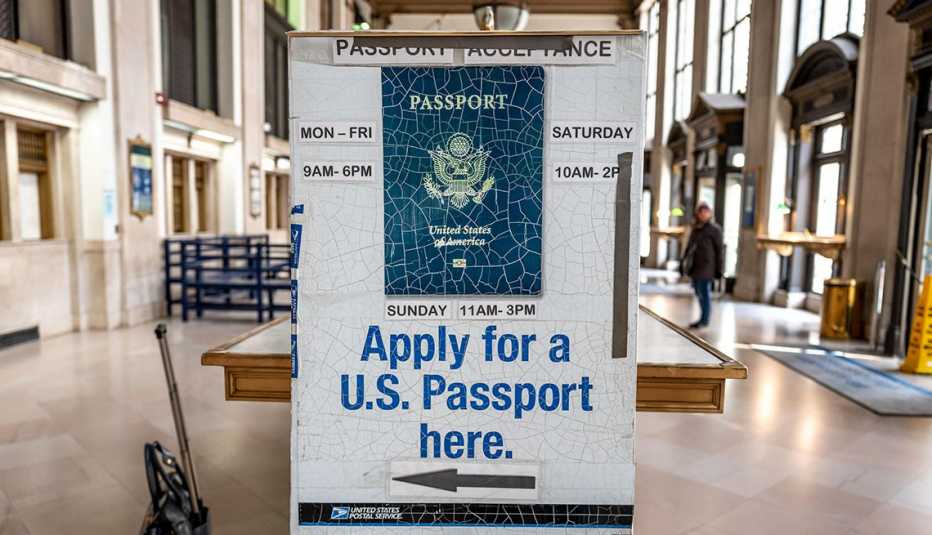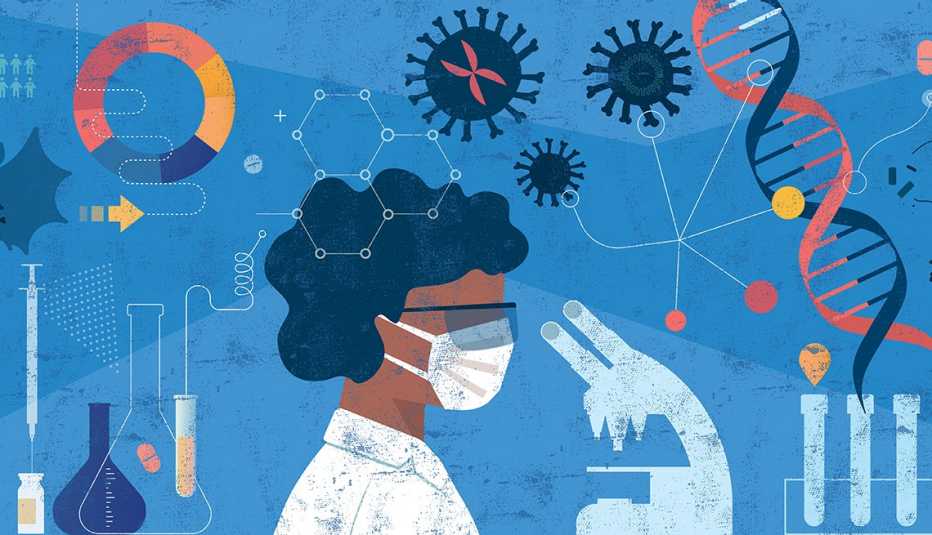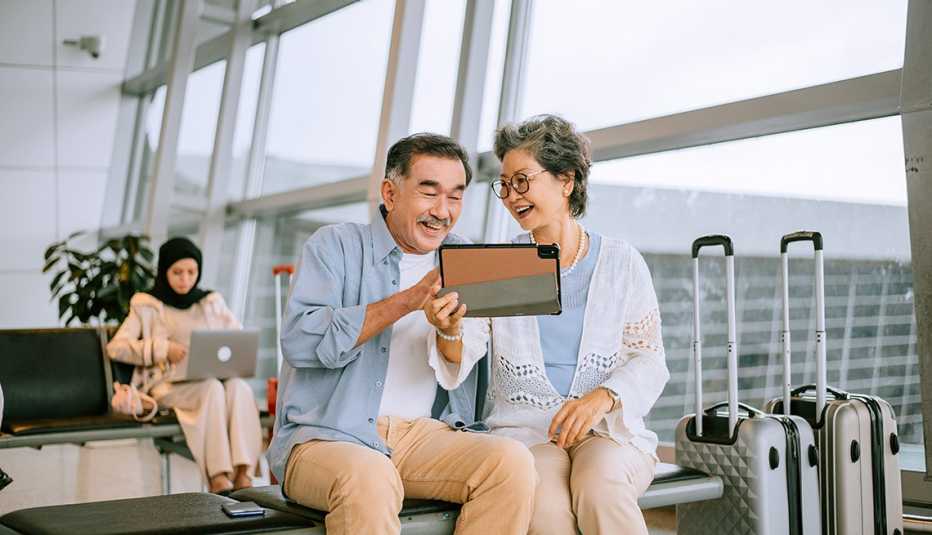AARP Hearing Center
When Jessica Malaty Rivera arrived at San Francisco International Airport from Mexico City in October, she noticed a sign asking for volunteers for a government pilot to provide early detection of COVID-19, flu, respiratory syncytial virus (RSV) and other respiratory viruses. After learning that the program was free, that she could do the nasal swab herself and that she’d get a COVID-19 test to take home, she was all in.
“As an epidemiologist and somebody who used to work at the COVID Tracking Project, [I know] there’s just never enough data, and data is how we make informed decisions,” says Malaty Rivera, senior science communication advisor at deBeaumont Foundation, a nonprofit focused on public health. “Any opportunity to participate in sharing good data is a yes for me.”
The traveler sampling program
The pilot is an expansion of the Centers for Disease Control and Prevention’s Traveler-based Genomic Surveillance program, which began during the COVID-19 pandemic to detect new SARS-CoV-2 variants and other pathogens (tiny organisms that can cause illness) through nasal swabs and wastewater collection of international travelers at seven international airports in the U.S. Now, nasal swab testing happens at six airports, but international travelers arriving at San Francisco International Airport and Dulles International Airport outside Washington, D.C., can volunteer for the new nasal swab testing that looks for multiple respiratory pathogens while still in the airport.
The testing booths are located outside of customs and immigration on the way to the exit (also look for big posters advertising the program). Health care representatives will be at the booths to answer any questions and help with the process. Travelers are asked to fill out a short form about travel history and other basic questions before submitting the nasal swab sample.
Participation is anonymous – no one asks for your name, and you won’t know your results. The samples are pooled and positive tests for the viruses undergo genome sequencing to determine variants. The data is uploaded to three public databases, including the CDC’s COVID Data Tracker.
Cindy Friedman, M.D., chief of CDC’s Travelers’ Health Branch, says the entire testing process is quick and easy. “I don't think it ever takes more than five minutes,” she says. “And then you get the free [COVID-19 test] kit.”
Friedman explains that, in addition to early detection of COVID-19 variants and other pathogens, the program is aimed at filling in gaps in global surveillance of diseases. Early detection buys critical time to get samples to CDC’s laboratories for further characterization.





































































